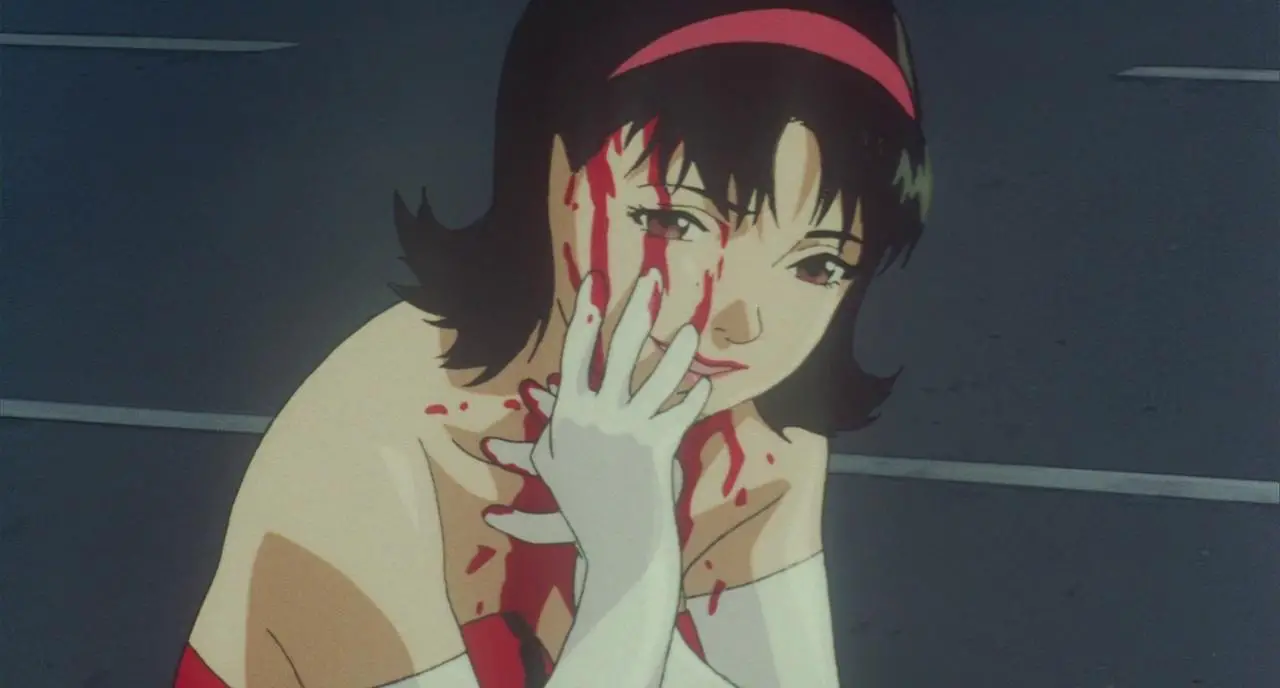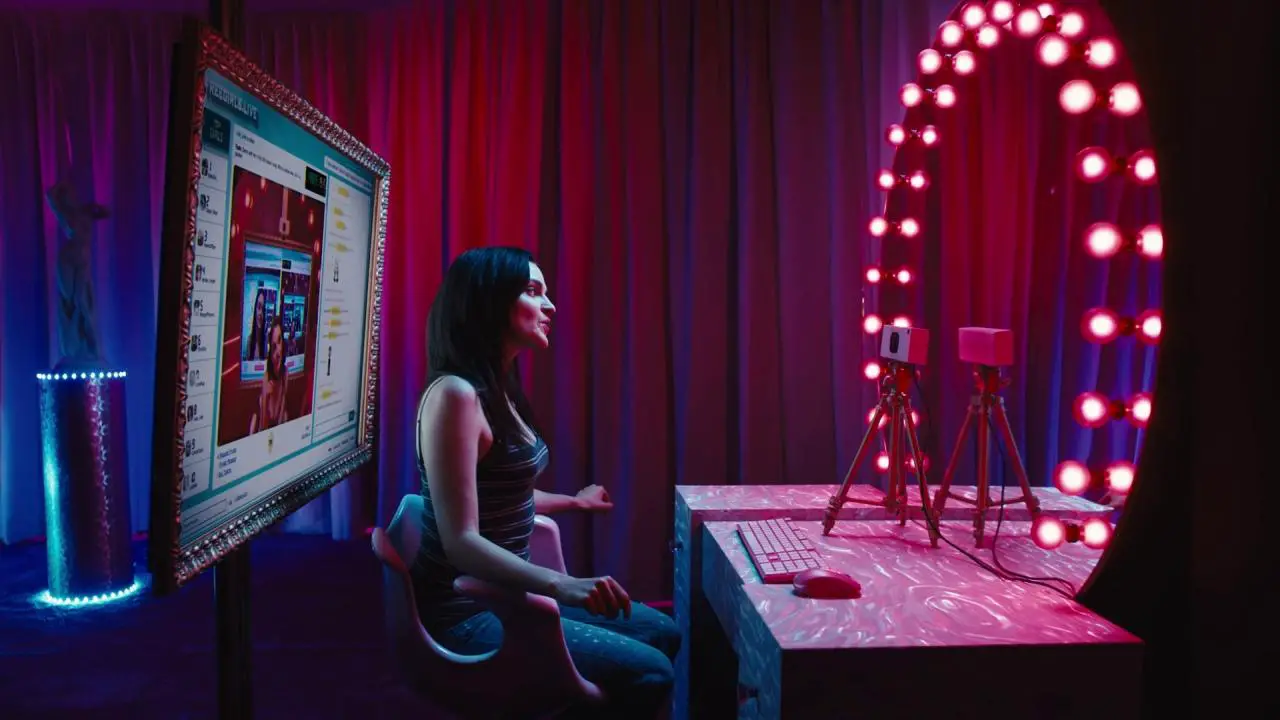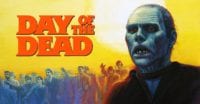In the past few days, a trailer dropped for a new video game by the name of Gamer Girl. Troll bait if I’d ever heard it.
The premise is simple: you play as a moderator for a Twitch streamer named AbiCake99, controlling her comments and decisions as she gets stalked in more and more disturbing ways by a “fan”. At some point, it seems to veer into straight up horror.
There are many reasons this is disturbing that we don’t have time to go into right now. Needless to say, it represents a failure to read the room regarding the harassment of women streamers by game developer Wales Interactive, despite what they claim are all the good, awareness-raising intentions in the world. Playstation even took the trailer down mere hours after uploading it due to the backlash.
This is the experience of many women, and claiming that because the lead actress improvised her lines it is fine to ape it for the sake of a few quick bucks on Steam is sketchy justification at best.
The life of a woman being harassed and targeted on the internet is far from a joke—just look at the recent reaction to The Last of Us Part 2 for daring to have players take control of a woman character with (gasp!) muscly arms. Developers and cast members have faced sexist and transphobic trolling, harassment, and of course, death threats. It feels terrible and glib to add “of course” into the mix, but the predictability of it all requires recourse to the banal.
I’m trying to avoid saying the phrase ‘Gamergate’, not just because it has Beetlejuice-esque qualities and attracts the very worst of humanity, but because that particular black hole of misogyny and hatred has been analysed to death. But it’s there, even now, years later, lurking in the back of the mind of every woman who takes part in online spaces, particularly those where men’s voices come through loudest.
Sadoshi Kun’s 1997 anime movie, Perfect Blue, really is the Ur-text to capture the horror of being a woman in online spaces. It is a remarkably prescient movie, full of tropes that would become all too commonplace and real as the internet progressed past its infancy.
The movie follows a young Japanese pop idol, Mima Kirigoe, who decides to leave behind her career as a cutesy, kid-friendly (and male fantasy) pop star in favour of a career as an actress. Over the course of the movie, she is stalked by a fan who has been impersonating her online, manipulated by everyone around her, right until she cannot recognise her reality anymore.

It’s a movie about how being a woman, particularly one in public view, is fraught with traps and pitfalls. Mima can be the Madonna, or the Whore. The fans present at her final concert in her pop group are almost entirely adult men, salivating over the singers as they dance in their innocent-but-sexy costumes. As an actress, her reputation is tarnished because her character is raped on screen in a disturbing scene.
Misogyny infects every single scene of the movie, and all of these social pressures are amplified by the growing voice and intrusion of the internet. Part of what causes Mima’s psychosis is a virtual diary written from her point of view, meticulously detailing every aspect of her day to the point where it is undeniable that she is being stalked.
The internet is just another aspect of human society. All our inventiveness, curiosity, anxiety, cruelty, kindness and terror is amplified by its use. We get the internet that we deserve.
2018’s Cam, directed by Daniel Goldhaber, builds on the anxieties presented in Perfect Blue. It’s the story of a young “Camgirl”, an internet model who hosts livestreams, often featuring sexual/erotic acts. Alice is a camgirl, and she’s doing pretty well for herself—she’s just made the top 50 of the most popular streamers on her platform.
That’s until a doppelganger appears, usurping her views and eventually leading to her revealing her career to her unsuspecting family.

Like Perfect Blue, Cam is a psychological horror that preys in part on our online fears. And like Perfect Blue, the insidious misogyny is figured as a virus, spreading not only hatred, but a fundamental lack of security in its protagonist’s sense of identity. Alice is forced to grapple with the idea that there’s someone out there who has all the same tricks she has, but is meaner, cleverer, who doesn’t tire or get frustrated. Who is quite content to work non-stop and keep reeling in the views.
These movies truly represent a new dawn in existential horror.
Movies like Cam and Perfect Blue are about women who are loved—adored even—and that’s horrifying enough.
But what happens when a woman is hated online?
In February of this year, a “channel trailer” started appearing all over my YouTube—it would crop up in adverts before videos, and on my recommended page.
I Am Sophie – The New Queen of Youtube, it proclaimed.
It looked dumb, to be honest. Just from the thumbnail image, I assumed it was some Instagram influencer trying to leverage that into an appearance on Love Island or something.
A month or so passed and I forgot all about the channel trailer, until I came across a video recapping the first arc of a new webseries of the same name.
I have to admit, I watched the recap before I watched the show itself.
It’s hard to explain this show’s premise, hard to even define it as a show, but here’s a brief rundown:
Sophie is a rich millennial—she’s living the Insta High Life. Think: the exact type of person who bought tickets to the Fyre Festival but claimed she got them for free because she’s an influencer.
The brand name for her merch (because of course she has merch) is YRP—Young Rich and Powerful.
She’s clueless, shallow and self-absorbed. She calls herself a “businesswoman” (“Business is a very big word for me”, she says solemnly. I crack up every time).
She’s also being haunted by a mysterious girl and a monster.
The video “My Number 1 Crazy Fan” tips the show’s hand—it was never a webseries about a rich girl, it was a horror show. And boy does it degenerate from there.
The monster, the Hand of Hate, as dubbed by the show’s investigative fanbase, is truly a horrifying figure. It looks like a human man in a suit, except there is a hand sewn onto its face, and HATE is tattooed on the knuckles of the hand.
Eventually, someone kidnaps Sophie, presumably Lara, the mysterious girl (and aforementioned Crazy Fan), and she is subjected to torture.
The second arc follows a man in a pitch-black room, making his way through discs from Lara—old vlogs of her that reveal the truth of this girl. Lara was a beautiful, sweet, kinda awkward but normal girl living with her dad. She liked makeup and gaming. She maybe wanted to go back to college to get a BTEC. Then an anonymous fan sends her a video game to stream.

It’s called Young Rich and Powerful, and it’s a twisted, horrifying version of Sophie’s videos rendered in 8-bit animation.
References to leather seats become about human skin, there are portals to hell, and the game repeatedly glitches to show Sophie’s tortured face and screams. All the while, Lara can’t stop playing. She’s totally absorbed by the horror, just as we are.

There’s a final character to be aware of—Simon. He’s introduced dancing in his room with a plush flamingo, with the same birds plastered all over his walls in wallpaper. We watch him through his webcam, and as he drinks and texts his friends. It’s revealed that he sent the game to Lara, that he is the one watching the discs.
He’s lonely, and convinced that he cares far more about his friends than they do about him.
In the latest video update, ‘I Can See You All’, it is revealed that Simon (and his precious flamingo) has been murdered.
RIP Simon, you might say.
But it’s also revealed by a recording of a Skype call (because what else could it be in 2020) that he put in an order for…something. He asked for her to be slim, blonde-haired, blue-eyed. For her to have certain words and phrases that he would code into her. He asked that she be named Sophie.
It’s all become rather Stepford Wives-esque, has it not?
And it’s this revelation that brings me back to where I started, to what I believe to be the core thematic question of this entire messy, gory webseries:
How much horror are women subjected to online?
The implication of the latest episode is that Simon, sore at his rejection time and again by Lara and his other friends, designed his ideal woman. Maybe as an AI, maybe as a sex robot. There are plenty of theories. But that part doesn’t really matter. What matters is that he thinks he can design and control this woman.
Given the brutal circumstances of his death, it’s pretty clear that he was wrong about that.
But beyond Simon, our two protagonists are Sophie and Lara. On the surface, they have nothing in common. But in many ways, they act as satires on specific varieties of women youtubers: Lara is the insecure, ‘real’ girl, and Sophie is the self-absorbed trainwreck you can’t look away from.
Both attract Hate, both in-universe, and without.
Lara’s version of Sophie’s channel trailer, during her All About Eve moment, features real comments from the original video plastered over Sophie’s face. “Bitch”, “Slag”, “Ugly twat” are all pretty common. These are from real people, who commented on this video thinking that the subject of their vitriol was a real woman, before they discovered that it is fiction.

When you think of real life youtubers who might be inspirations for Sophie, you probably think of the Paul brothers, Jeffree Star, Shane Dawson—the mega-successful of the platform who have parlayed their personas into “real life” fame and clout.
But Sophie isn’t really anything like them. She’s shallow and self-absorbed, to be sure. She’s obnoxious and you don’t really like her. But she’s not mean, or cruel. She’s not racist or transphobic or anything like that. She’s just a spoiled little rich girl.
The Hate she attracts is totally disproportionate to her offense.
Lara is similar, although the hatred she faces is less obvious. She’s clearly insecure, likes makeup (without a particularly awesome talent at it), and enjoys video games. Now that is walking troll bait for the internet.
She’s largely ignored, garnering only six views per video on her channel—just as unpopular online as she is in real life.
And yet, even though her audience amounts to essentially nothing, she still attracts Hate. She still attracts someone who sends her a game that is clearly horrifying, that will humiliate her at best. The subtext being that her fear will prove that she’s not a ‘real’ gamer after all.
It seems that a woman on the internet can’t win.
If you have an audience, you’re an evil bitch who contributes nothing and deserves to die. If you don’t have one, but nevertheless dare to take up space, you can still be found by creeps who feel entitled to your time and energy.
Either way, Hate, be it the Hand thereof or the real thing, will eventually find you and try to destroy your life. Much like being adored almost destroys Mima’s life in Perfect Blue, and Alice’s in Cam.
Being a woman on the internet is a bit like playing Russian Roulette. The gun you’re given has one bullet in the chamber. You fire blanks at yourself, until you don’t. And it’s only a matter of time until that streak of luck breaks.
“Male fantasies, male fantasies,” Margaret Atwood wrote in The Robber Bride, “Up on a pedestal or down on your knees, it’s all a male fantasy: that you’re strong enough to take what they dish out, or else too weak to do anything about it”. That passage has been on a loop in my head for years.
Later in the passage, she writes that “You are your own voyeur”. Never been more true than now, in this YouTube, algorithm, Hate-driven society.
If nothing else, IAmSophie has exposed how susceptible we are to Hate in all its forms. How easily we judge people by how they present themselves online, and how fickle those judgements can be.
It’s too early in the story, I think, to argue that it’s calling for a better way forward—that we should be kinder to each other and get back in touch with our empathy. For now, IAmSophie revels in the highly specific horror of being a woman on the internet.
What a goddamn nightmare.


